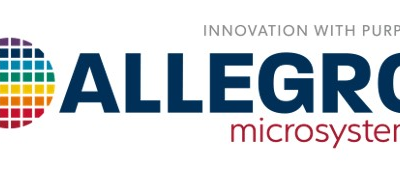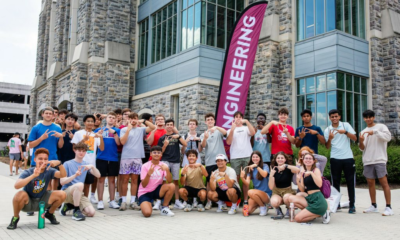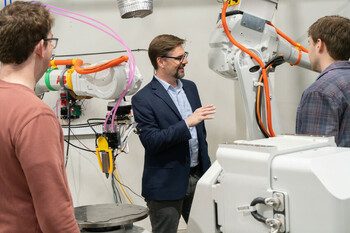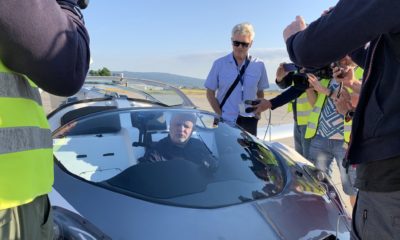Tech News
Advancing technology for aquaculture | MIT News | Massachusetts Institute of Technology – MIT News
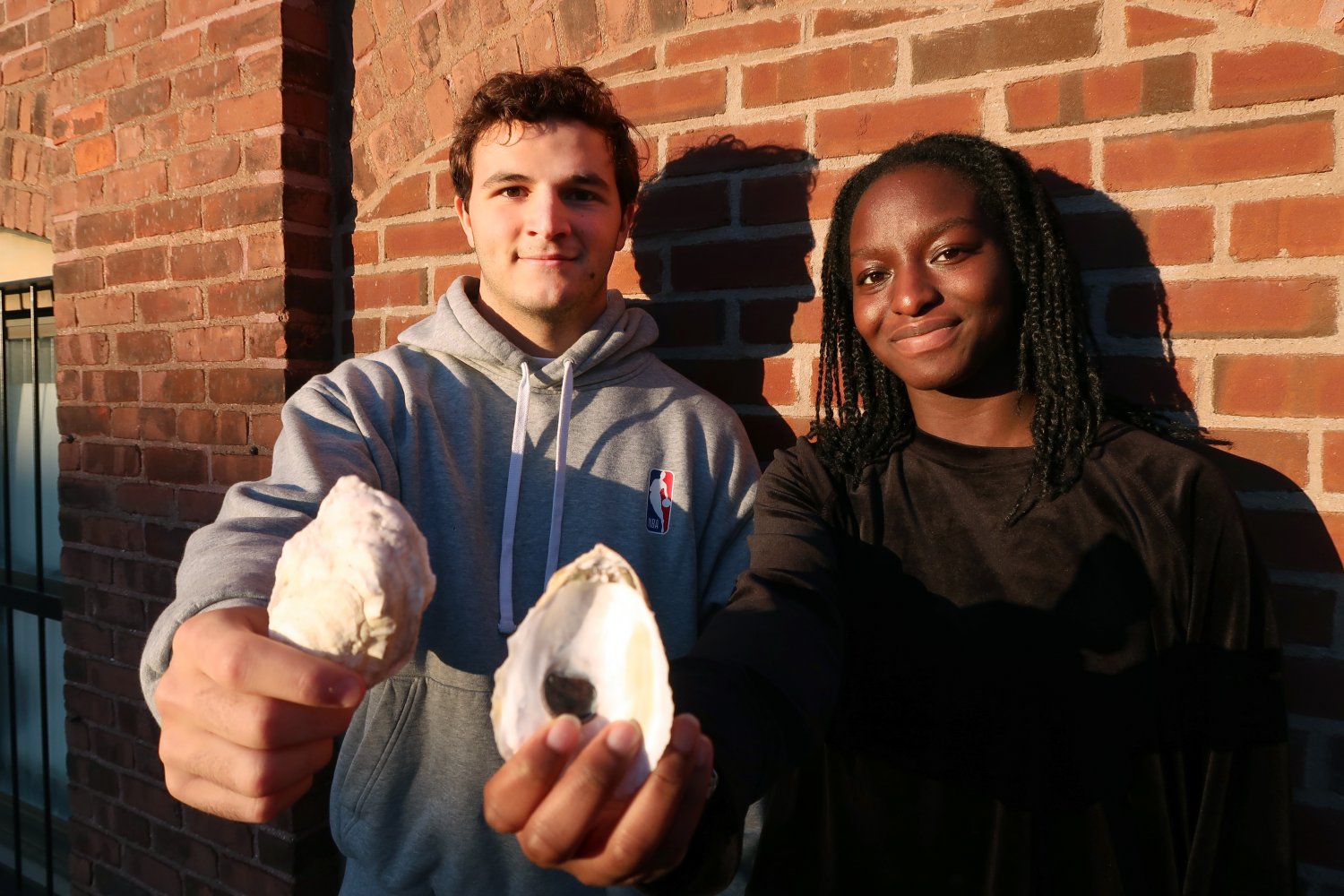
Suggestions or feedback?
According to the National Oceanic and Atmospheric Administration, aquaculture in the United States represents a $1.5 billion industry annually. Like land-based farming, shellfish aquaculture requires healthy seed production in order to maintain a sustainable industry. Aquaculture hatchery production of shellfish larvae — seeds — requires close monitoring to track mortality rates and assess health from the earliest stages of life.
Careful observation is necessary to inform production scheduling, determine effects of naturally occurring harmful bacteria, and ensure sustainable seed production. This is an essential step for shellfish hatcheries but is currently a time-consuming manual process prone to human error.
With funding from MIT’s Abdul Latif Jameel Water and Food Systems Lab (J-WAFS), MIT Sea Grant is working with Associate Professor Otto Cordero of the MIT Department of Civil and Environmental Engineering, Professor Taskin Padir and Research Scientist Mark Zolotas at the Northeastern University Institute for Experiential Robotics, and others at the Aquaculture Research Corporation (A.R.C.), and the Cape Cod Commercial Fishermen’s Alliance, to advance technology for the aquaculture industry. Located on Cape Cod, A.R.C. is a leading shellfish hatchery, farm, and wholesaler that plays a vital role in providing high-quality shellfish seed to local and regional growers.
Two MIT students have joined the effort this semester, working with Robert Vincent, MIT Sea Grant’s assistant director of advisory services, through the Undergraduate Research Opportunities Program (UROP).
First-year student Unyime Usua and sophomore Santiago Borrego are using microscopy images of shellfish seed from A.R.C. to train machine learning algorithms that will help automate the identification and counting process. The resulting user-friendly image recognition tool aims to aid aquaculturists in differentiating and counting healthy, unhealthy, and dead shellfish larvae, improving accuracy and reducing time and effort.
Vincent explains that AI is a powerful tool for environmental science that enables researchers, industry, and resource managers to address challenges that have long been pinch points for accurate data collection, analysis, predictions, and streamlining processes. “Funding support from programs like J-WAFS enable us to tackle these problems head-on,” he says.
ARC faces challenges with manually quantifying larvae classes, an important step in their seed production process. “When larvae are in their growing stages they are constantly being sized and counted,” explains Cheryl James, A.R.C. larval/juvenile production manager. “This process is critical to encourage optimal growth and strengthen the population.”
Developing an automated identification and counting system will help to improve this step in the production process with time and cost benefits. “This is not an easy task,” says Vincent, “but with the guidance of Dr. Zolotas at the Northeastern University Institute for Experiential Robotics and the work of the UROP students, we have made solid progress.”
The UROP program benefits both researchers and students. Involving MIT UROP students in developing these types of systems provides insights into AI applications that they might not have considered, providing opportunities to explore, learn, and apply themselves while contributing to solving real challenges.
Borrego saw this project as an opportunity to apply what he’d learned in class 6.390 (Introduction to Machine Learning) to a real-world issue. “I was starting to form an idea of how computers can see images and extract information from them,” he says. “I wanted to keep exploring that.”
Usua decided to pursue the project because of the direct industry impacts it could have. “I’m pretty interested in seeing how we can utilize machine learning to make people’s lives easier. We are using AI to help biologists make this counting and identification process easier.” While Usua wasn’t familiar with aquaculture before starting this project, she explains, “Just hearing about the hatcheries that Dr. Vincent was telling us about, it was unfortunate that not a lot of people know what’s going on and the problems that they’re facing.”
On Cape Cod alone, aquaculture is an $18 million per year industry. But the Massachusetts Division of Marine Fisheries estimates that hatcheries are only able to meet 70–80 percent of seed demand annually, which impacts local growers and economies. Through this project, the partners aim to develop technology that will increase seed production, advance industry capabilities, and help understand and improve the hatchery microbiome.
Borrego explains the initial challenge of having limited data to work with. “Starting out, we had to go through and label all of the data, but going through that process helped me learn a lot.” In true MIT fashion, he shares his takeaway from the project: “Try to get the best out of what you’re given with the data you have to work with. You’re going to have to adapt and change your strategies depending on what you have.”
Usua describes her experience going through the research process, communicating in a team, and deciding what approaches to take. “Research is a difficult and long process, but there is a lot to gain from it because it teaches you to look for things on your own and find your own solutions to problems.”
In addition to increasing seed production and reducing the human labor required in the hatchery process, the collaborators expect this project to contribute to cost savings and technology integration to support one of the most underserved industries in the United States.
Borrego and Usua both plan to continue their work for a second semester with MIT Sea Grant. Borrego is interested in learning more about how technology can be used to protect the environment and wildlife. Usua says she hopes to explore more projects related to aquaculture. “It seems like there’s an infinite amount of ways to tackle these issues.”
Read full story →
Read full story →
Read full story →
Read full story →
Read full story →
Read full story →
This website is managed by the MIT News Office, part of the Institute Office of Communications.
Massachusetts Institute of Technology
77 Massachusetts Avenue, Cambridge, MA, USA
Tech News
Exploring Startup Opportunities In Alternative Fuel Technology – Forbes

In this article, we explore four startup opportunities in alternative fuel technology, ranging from … [+]
In the context of the ever-growing energy consumption demands of our global civilization, especially bearing in mind the rising living standards in some of the most populous areas in Asia and Africa, combined with the environmental impact of the energy sector, innovations in energy and fuel technology are likely some of the most important and impactful technological developments to look forward to in the coming decades.
With this in mind, if you are a startup founder looking to change the world for the better alternative fuel technology is a promising field to focus your energy on. Startups at the forefront of this movement have the opportunity to revolutionize the transportation sector and accelerate the transition to a sustainable future. Моreover, because of the environmental impact of such technologies finding funding for your startup could be easier because of the availability of public funding for green technologies in a generally favorable regulatory environment.
In this article, we’ll explore four startup opportunities in alternative fuel technology, ranging from electric vehicle charging infrastructure to biofuels, highlighting their potential for innovation and market disruption.
Electric vehicles (EVs) are becoming increasingly popular as consumers and governments prioritize cleaner transportation options. However, the widespread adoption of EVs hinges on the availability of reliable and convenient charging infrastructure.
Startups in this space can focus on developing innovative solutions such as fast-charging stations, wireless charging technology, and smart grid integration. For example, companies like ChargePoint and EVgo are pioneering the development of EV charging networks across the globe, catering to the growing demand for electric mobility.
The opportunity for startups lies in addressing key challenges such as scalability, interoperability, and user experience. By leveraging advanced technologies and strategic partnerships, startups can play a vital role in expanding EV charging infrastructure and accelerating the adoption of electric vehicles.
Battery technology is a critical component of alternative fuel technology, enabling energy storage for electric vehicles, renewable energy systems, and portable electronics. In fact, energy storage technology is becoming a choke-point for most of the mass adoption and practical feasibility of a lot of EV and alternative energy solutions.
Startups in this space can focus on developing advanced battery chemistries, materials, and manufacturing processes to improve performance, safety, and cost-effectiveness. For example, companies like Tesla and Panasonic are leading the charge in lithium-ion battery production, driving down costs and improving energy density.
The demand for high-performance batteries is expected to surge as electric vehicles and renewable energy installations continue to grow. Startups that can innovate in areas such as solid-state batteries, silicon-anode technology, and battery recycling have the potential to disrupt the market and capture significant market share. Moreover, advancements in battery technology can unlock new applications such as grid-scale energy storage and electric aviation, further expanding the market opportunity for startups.
Hydrogen fuel cells offer a promising alternative to traditional combustion engines, providing zero-emission power for various applications, including vehicles, drones, and stationary power systems. Startups in this space can focus on developing innovative solutions for hydrogen production, storage, distribution, and fuel cell technology.
For example, companies like Ballard Power Systems and Plug Power are leading the commercialization of hydrogen fuel cell technology for transportation and industrial applications.
The scalability and versatility of hydrogen fuel cells present a compelling opportunity for startups to drive innovation and market penetration. By overcoming technical challenges such as cost, efficiency, and infrastructure, startups can position themselves as key players in a possible transition to a hydrogen-based economy. Additionally, government incentives and industry partnerships can provide critical support for startups seeking to capitalize on the growing demand for clean energy solutions.
Biofuels offer a renewable alternative to conventional fossil fuels, derived from organic sources such as biomass, algae, waste materials, or agricultural residues. Startups in this space can focus on developing sustainable biofuel production processes that minimize environmental impact and maximize energy efficiency.
For example, companies like Renewable Energy Group and Gevo are leveraging advanced biotechnology and feedstock optimization to produce low-carbon biofuels for transportation and heating applications among others.
The abundance of organic feedstocks and the potential for carbon neutrality make biofuels an attractive option for reducing greenhouse gas emissions and mitigating climate change. Startups that can innovate in biofuel production, distribution, and certification have the opportunity to disrupt traditional energy markets and drive the transition to a more sustainable energy future. Additionally, government mandates and corporate sustainability initiatives create a favorable regulatory environment for biofuel startups to thrive.
Tech News
GHSP Leverages Allegro MicroSystems' Technology to Shift – GlobeNewswire
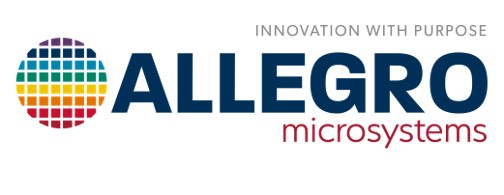
| Source: Allegro MicroSystems, Inc.
MANCHESTER, N.H., April 30, 2024 (GLOBE NEWSWIRE) — Allegro MicroSystems, Inc. (“Allegro”) (Nasdaq: ALGM) a global leader in power and sensing semiconductor technology for motion control and energy efficient-system is pleased to announce, that GHSP, a global provider of mechanical and electromechanical systems and portfolio company of JSJ Corporation, is closely collaborating with and has adopted Allegro’s best-in-class gate driver and vehicle sensor technology for its new eVibe vibration enhancement system.
In the rapidly evolving world of xEV technology, there is a new class of xEV enthusiasts who crave a more immersive motoring experience. GHSP’s eVibe system transforms xEV driving by providing drivers with the noise and vibrations that mimic the familiar feel and sounds of a traditional internal combustion engine. At the heart of this next-level technology, is Allegro’s A89500 motor driver and APS12215 Hall-effect latch, which provide best-in-class performance and switching capabilities.
“From the beginning, our challenge has always been to create a solution that would address a unique and growing xEV market segment,” said Dan Dawiedczyk, President of GHSP. “We are excited to collaborate and combine our industry experience and expertise, to help bring our vision to life. Together, Allegro and GHSP are developing groundbreaking innovations. We look forward to a winning partnership for many years to come.”
Helping to elevate the end product, Allegro’s A89500 motor driver allows for high power density and fast switching to help provide instant response and feel. Its transient robustness and wide input voltage range make it a standout solution in the market. The APS12215 Hall-effect latch, on the other hand, provides high-temperature performance and stable switching capabilities, enabling the eVibe system to precisely track and monitor the position of the motors’ unbalanced weights, ultimately leading to a more realistic vibration experience. The eVibe technology allows several applications including ADAS, ICE emulation, or high performance.
“For more than a decade, Allegro has worked closely with market-leading automotive partners to develop innovative solutions that help shift the future of driving, power and performance in electric vehicles,” said Suman Narayan, Allegro’s Senior Vice President, Products. “Our latest collaboration highlights a new, growing market segment and demand for Allegro’s technology. We value GHSP’s automotive expertise and look forward to our continued partnership as we develop solutions that drive innovation.”
The impact of eVibe extends beyond just the driving experience. It represents a shift towards the future of xEV technology and the way owners engage with their vehicles. From mimicking an idle feel to simulated engine throttle and high-speed gear shifts via premium vibration indicators, GHSP’s technology is providing drivers with a more immersive and connected drive. This innovation has the potential to reshape the xEV market, catering to a wider range of custom options and individual customer preferences, while also helping to further the adoption of electric vehicles.
On Thursday, May 2, GHSP and Allegro will host a virtual round table discussing “The Evolution of eVibe with GHSP and Allegro MicroSystems.” To learn more and register for this event please visit: https://allegromicro.com/en/applications/automotive
For more information about the eVibe system please visit: https://www.ghsp.com/evibe
About Allegro MicroSystems
Allegro MicroSystems, Inc. is a leading global designer, developer, fabless manufacturer and marketer of sensor integrated circuits (“ICs”) and application-specific analog power ICs enabling emerging technologies in the automotive and industrial markets. Allegro’s diverse product portfolio provides efficient and reliable solutions for the electrification of vehicles, automotive ADAS safety features, automation for Industry 4.0 and power-saving technologies for data centers and clean energy applications. For additional information, please visit https://www.allegromicro.com/en/.
About GHSP
GHSP is a privately owned company based in Grand Haven, Mich., that specializes in the design and manufacturing of innovative control systems and technology solutions primarily for the automobile and high-end appliance industries. Founded in 1924, GHSP has locations in North America, Europe and Asia. GHSP is a portfolio business within JSJ Corporation, a growth firm with global manufacturing, distribution and service businesses that focus on highly technical skills to deliver engineered solutions. Learn more at GHSP.com and JSJcorp.com.
Allegro Contact:
Laura Kozikowski
Sr. Director of Global Marketing and Corporate Communications
[email protected]
GHSP Contact:
Liz Hoffswell
Marketing & Communication Leader
[email protected]
Tech News
BAE Systems' electric drive technology to power GILLIG's new hydrogen fuel cell transit buses for zero-emission … – BAE Systems
-

 General Knowledge2 years ago
General Knowledge2 years agoList of Indian States and Capital
-

 General Knowledge2 years ago
General Knowledge2 years agoList Of 400 Famous Books and Authors
-

 Important Days4 years ago
Important Days4 years agoImportant Days of Each Month
-

 General Knowledge2 years ago
General Knowledge2 years agoCountries and their National Sports
-

 General Knowledge3 years ago
General Knowledge3 years agoCountry Capital and Currency
-

 Important Days3 years ago
Important Days3 years agoHoli
-

 General Knowledge2 years ago
General Knowledge2 years agoList of Indian President
-

 General Knowledge2 years ago
General Knowledge2 years agoList of Indian Vice President




